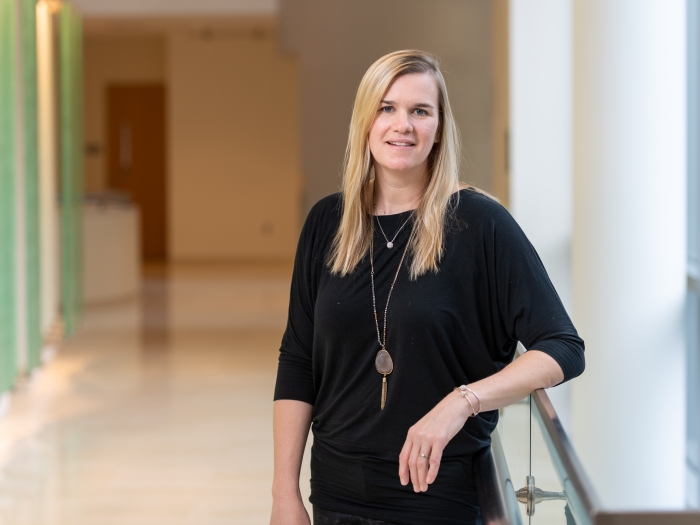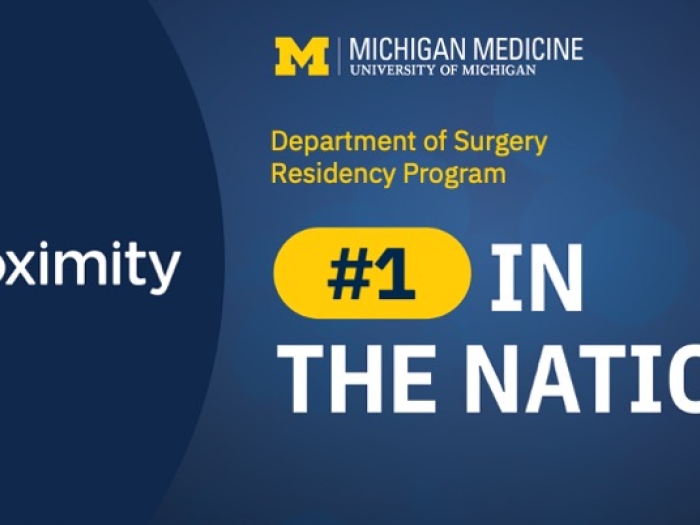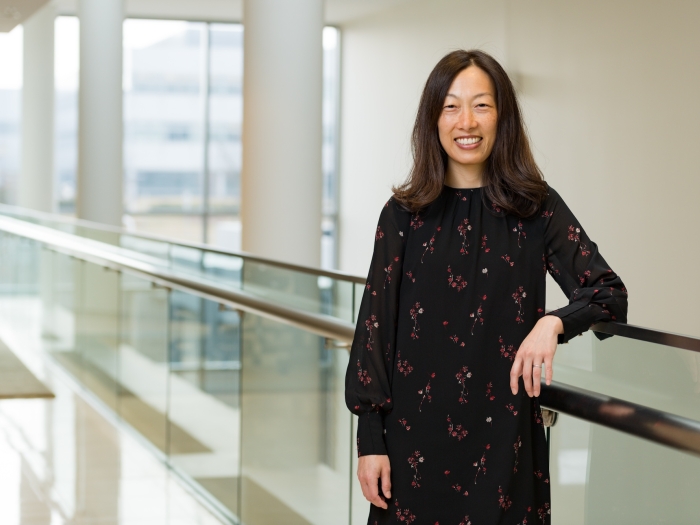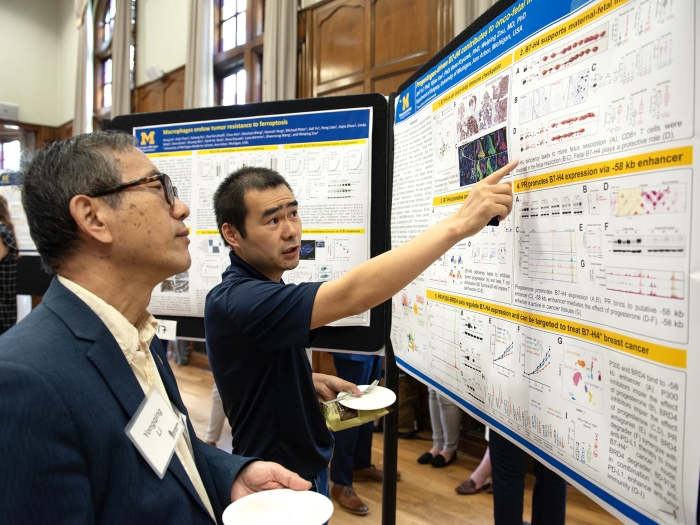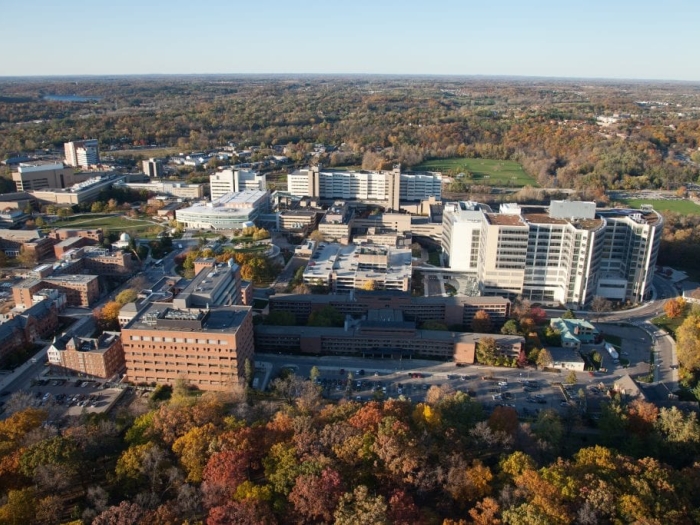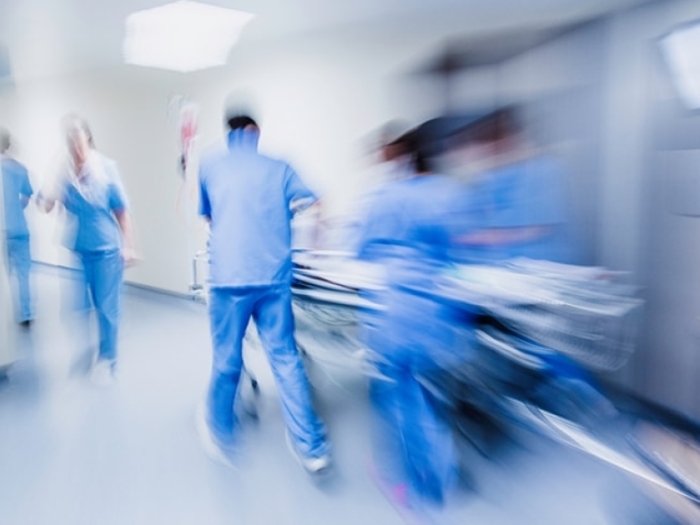With one of the largest and most productive vascular surgery research programs in the country, U-M Medical School surgeons and investigators develop knowledge that advances our understanding of disease mechanisms.
We use these discoveries to produce new treatments and techniques that improve patients’ lives.
Explore the interests and current efforts of our vascular surgery and biology researchers.
With full-time research faculty, as well as clinical faculty who perform research, Michigan Vascular Surgery investigators publish numerous publications a year, covering the spectrum of basic science, translational, clinical and health services research.
The hub for our research efforts is the Conrad Jobst Vascular Research Laboratories, located in U-M’s North Campus Research Complex, a 28-building campus designed for teamwork across the disciplines. By uniting the section’s research efforts in the Jobst, we’re able to accelerate discovery through sharing ideas and resources, including core unit support for molecular, hematology and cell biology.
This highly collaborative approach reflects our culture and our passion for teaching at the bench. We’ve welcomed everyone from high schoolers to international visiting scholars to our labs.
Our multidisciplinary efforts include mechanical, biomedical and aerospace engineers, as well as vascular surgeons. We use powerful computing cores, including U-M’s Flux supercomputing infrastructure, to enable efficient computation of hemodynamics in complex image-based cardiovascular models. This blood-flow modeling opens up possibilities to evaluate the performance of endovascular stent grafts, and to support surgical decision-making before such procedures as TEVAR and EVAR.
By co-locating 6 faculty labs in one central facility, we share expertise and invest in robust resources to pursue high-impact science. The federally funded Jobst Labs occupy 4,900 square feet in the U-M’s North Campus Research Complex, and focus on venous thrombosis, vascular inflammation, thrombus resolution, traumatic injury, nephropathy, abdominal aneurysms, and medical device testing.
We work to advance the development and commercialization of new treatments, new medical devices, and new ideas for the delivery of care for vascular surgery patients.
Ensuring that patient voices are heard throughout the decision making process leads to better outcomes and patient satisfaction. We explore how to create individualized patient treatment plans that fit each patient’s needs. We are involved in the Vascular Cures Foundation’s Project Voice, a digital platform designed to customize options for care based upon data from patients. Using quantifiable objective information, patients provide input on what options are the best fit for them, increasing communication.
In order to improve outcomes for patients, we study variation in medical endovascular and surgical treatment across the VA healthcare system, investigating the underlying factors for these differences. Partnerships for this effort include the U-M Institute for Healthcare Policy & Innovation and the VA Center for Clinical Management and Research.
Your contribution helps us research medical breakthroughs, make medicine more inclusive and train the next generation of surgical leaders.
